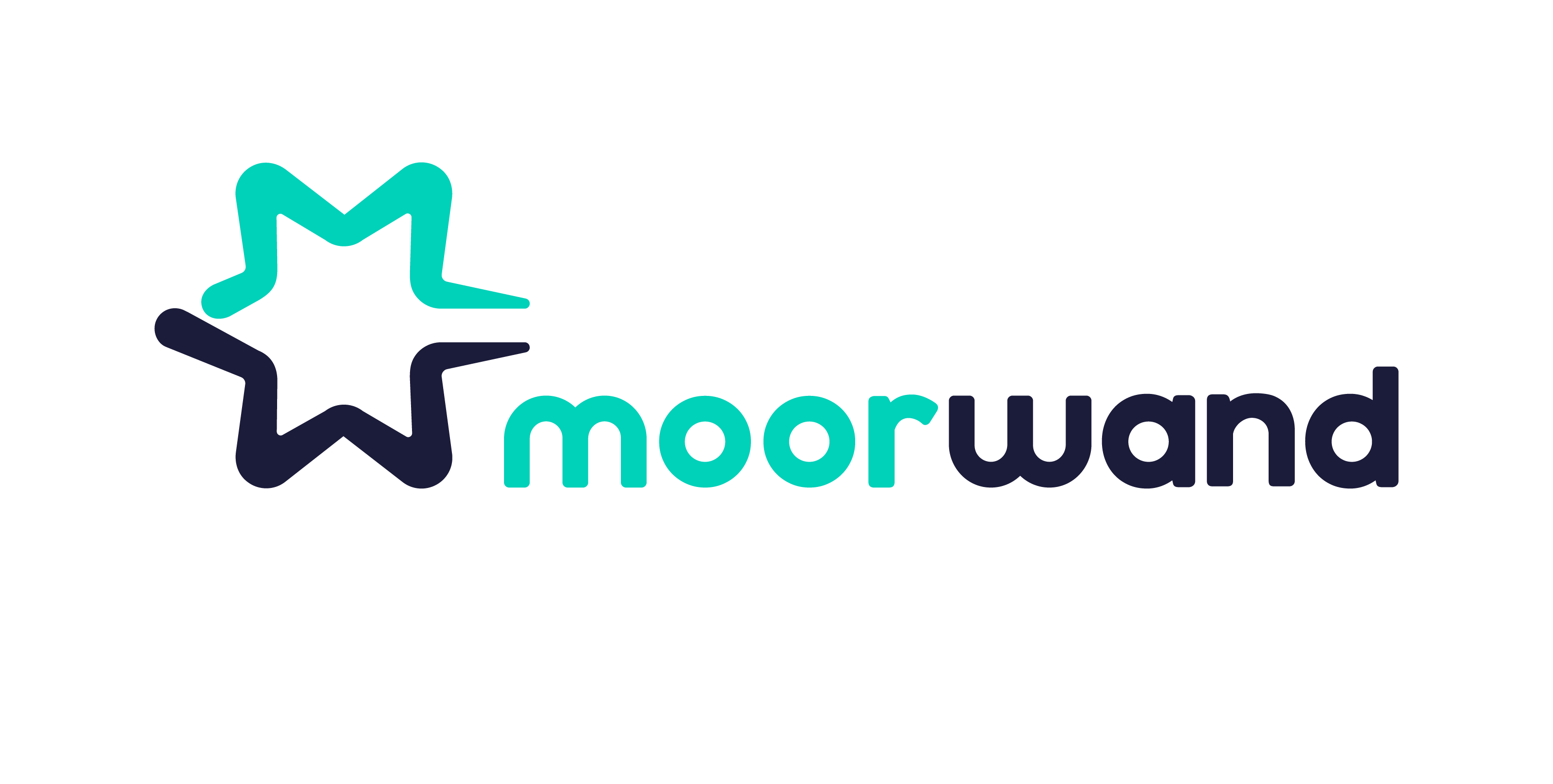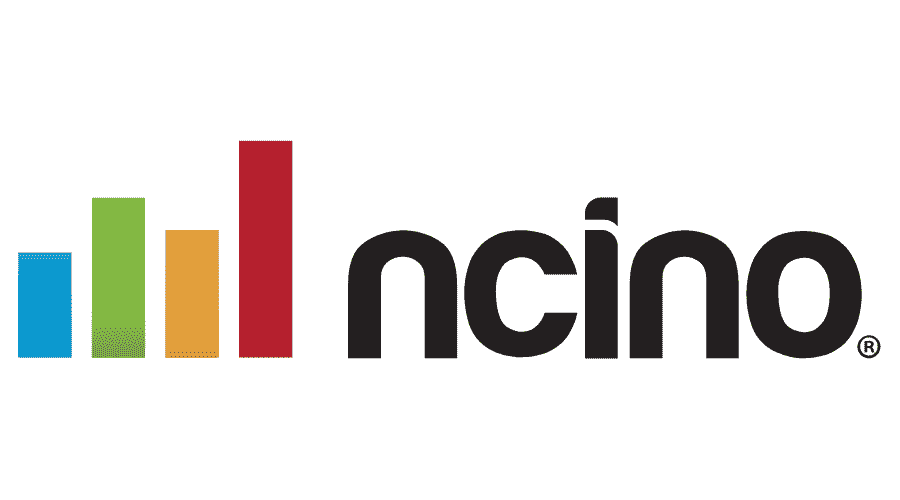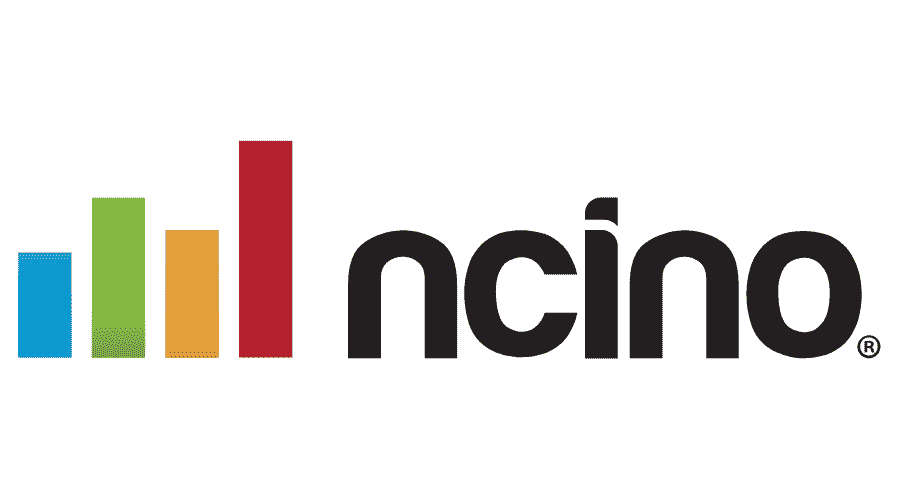Published
- 03:00 am

Over two thirds (66 per cent) of small and medium sized enterprises (SMEs) have said they felt let down by their banking provider during the Coronavirus pandemic, according to a new survey. The data, collated by researchers from the Parliament Street Think Tank, indicates that the disconnect between businesses across Europe and financial services organisations has widened since the beginning of the pandemic.
The team of analysts conducted telephone interviews with 250 SMEs across the UK, France, and Germany in August 2021. Industry sectors involved in the research included manufacturing, food and beverage, retail, and professional services.
Interestingly, 55 per cent of SMEs said they are actively considering seeking a new provider as a result of poor services during the pandemic. Additionally, 76 per cent described their banks’ payments processes as ‘expensive and inefficient’.
Over half (56 per cent) of all respondents stated that they think their bank does not prioritise their needs. The research also revealed that 34 per cent are seeking a specialist financial provider to give them access to tier one banking services and offer more financial options.
As the bitcoin trend continues to build traction, 51 per cent would consider investment in cryptocurrency this year, proving that SMEs are starting to consider alternative investment models. Whilst over half (56 per cent) said that they need access to credit or loans in order to grow this year.
A surprising 67 per cent say their bank offers a limited suite of financial services and almost half (42 per cent) say they struggle to access professional consultancy about their business needs.
Justinas Basalykas, CEO of banking services provider SH Payments says:
“SMEs are the lifeblood of the global economy, and its shocking that so many feel disappointed in the support offered to them by banks over the last year. As businesses begin to rebuild and reboot with even more digital approach and international interaction, getting access to capital and cross-border payments services is critical for expansion and job creation.
Key to this effort is not only giving them access to agile financial services such as e-wallets, apps supported payments and other cutting-edge technologies, but also by connecting them with well-established world-leading banking and financial services which otherwise wouldn’t be available to them, enabling smooth and effective payments processes.”
Related News
- 03:00 am

Mobility payment solutions disruptor Bussr has forecast sales of $1 billion in 2022
Bussr offers a mobility payment solutions platform for businesses and users, powering payments infrastructure for the mobility market using the latest booking and ticketing innovations. More than 800 businesses have already signed on to use Bussr's platform, 100 of which, amounting to US$150 million in annual sales, will go live in 2021
Bussr believes that every trip and transaction should empower people to move and connect, with the smallest carbon footprint possible. Every Bussr trip considers distance and environmental impact as well as the ability to reduce urban congestion.
Bussr is also in the advanced discussion stage with the Indonesian Government to digitize the metro transit ecosystem, with an expected 10 million daily users.
Bussr's innovative offerings extend to disrupting the last-mile logistics space; delivery brands and retailers will have a simple, automated way of integrating and adding the most relevant payment options to their business model, delighting their customers with affordable same-day delivery.
The mobility sector is an immense $2 trillion market that still relies on paper cash, fax machines, and manila envelopes. By 2050, the global population is projected to increase to around 9.8 billion, with more than twice as many people living in urban areas than in rural settings. The need for innovation in the mobility and logistics payments sector is clear.
"We are tackling a massive $2 trillion market, developing modern software for an industry that still relies on woefully outmoded paper-based systems. We bring security, efficiency, and joy to a paper-based pillar of the global market economy. We want to empower mobility and logistics partners with the right tools for their users. Mobility providers will be able to offer seamless payment options across the entire mobility ecosystem," said Hussein, CEO of Bussr.
Bussr's payment solutions platform allows mobility businesses of all types to have bespoke booking and ticketing solutions for their respective markets. For operators, brands, and retailers, getting onboard with Bussr is a near-effortless three-step process:
1. Get your branded mobile app and website
2. Add your product with prices and descriptions
3. Choose your payment options and start selling
The overarching theme of efficiency runs deeper -- Bussr understands that its responsibilities will ultimately impact people and the planet alike. This means that every trip and transaction should empower people to move and connect, all the while with the smallest carbon footprint possible. Every trip considers distance and environmental impact as well as its ability to reduce urban congestion.
With the complex goal of changing the way people connect across cities and countries, Bussr benefits from its strong leadership trio: tech entrepreneur Hussein Abdelkarim, former Rocket Internet founder and CEO, I.M. Shousha, veteran technology consultant and co-founder, and Ajay Bhandari, former Microsoft Chief Architect, CTO, and co-founder.
Related News
- 09:00 am

Fime is now supporting the certification of point of interaction (POI) solutions in line with the latest nexo standards implementation specifications*. Based on nexo Fast specifications and nexo ISO20022 protocols, the certification harmonizes the behavior and communication between the terminal, the acquirer host and the estate management system. This helps stakeholders to reduce system management costs and deliver high interoperability across borders.
This implementation enables stakeholders to ensure the quality and interoperability of their POI terminals, allowing a broad spectrum of merchants to implement them. Early adopters of the certification can benefit from Fime’s end-to-end portfolio of nexo standards consultancy, debugging, testing and certification services.
Patrice Hertzog, Chairman of the nexo standards Board of Directors adds: “nexo standards’ goal of enabling interoperable payments acceptance at a regional, national and international level is fast becoming a reality as more stakeholders implement our standards. With Fime’s invaluable support, acquirers can feel confident in the quality of their POI implementations to serve their entire merchant base – from small merchants to large global retailers.”
Lionel Grosclaude, CEO at Fime says: “As nexo standards projects continue to gather momentum, Fime is supporting stakeholders at every stage of their migration journeys. Our services range from clearly defining business requirements to testing, certification and training services. We are committed to removing payment acceptance complexity for everyone.”
Related News
- 05:00 am

ISO 20022 ready platform automates regulatory reporting to reduce the risk of non-compliance
Identitii Limited (ASX:ID8) (Identitii, Company) is pleased to announce the launch of a brand-new Software-as-a-Service (SaaS) platform designed to help reduce the risk of non-compliance with international anti-money laundering (AML) and counter-terrorist financing (CTF) reporting obligations, starting with Australia’s AUSTRAC. Available immediately, the cloud-based platform delivers end-to-end automation of AUSTRAC reporting and future proofs compliance by accepting any payment file format used today as well as offering transformation from SWIFT FIN files to the new global ISO 20022 standard.
Initially available for AUSTRAC reporting in Australia, the platform easily adapts for regulatory requirements in other countries, with New Zealand, the UK and Canada among the next jurisdictions to be added. The platform provides reporting entities with visibility over what has and has not been reported, and overcomes the challenges associated with using spreadsheets to manage compliance, significantly reducing the amount of manual processing needed to identify, collect and report cross-border and large value payments to regulators.
Commenting on the announcement, John Rayment, CEO, Identitii, says: “US$10.5Billion was levied for non-compliance with AML and CTF regulations in 2020, however complete and accurate reporting isn’t as easy as it sounds. There is still wide-spread use of spreadsheets to manage compliance, issues around the quality and accuracy of data, and a lack of visibility into what has been reported and why.
“At the same time, the cross-border payments world is changing. The global financial services industry is migrating to the new global ISO 20022 standard and this will have significant impact on both internal payment systems and reporting compliance, as financial institutions and regulators undertake large technology upgrade projects to adopt the new standard.
“Together these issues mean it is vital for reporting entities to ensure they have robust AML and CTF processes and procedures that support their business today and into the future.”
“Identitii set out to address these challenges not only for the large financial institutions we already work with, but for any reporting entity that has AML and CTF reporting obligations. Whether they report 500 or 15 million transactions a year, we’re thrilled to be able to help reporting entities achieve transparent, auditable and accurate reporting, initially to AUSTRAC in Australia, with our new SaaS platform launched today.”
Identitii’s new SaaS reporting platform expands on the capabilities of the Company’s existing AML and CTF reporting solutions, and makes it easier for Mutual Banks, Money Service Businesses, Superannuation Funds, Casinos and Non-bank Financial Institutions to ensure complete and accurate regulatory reporting.
The platform captures payment data in any format, including ISO 20022 and SWIFT FIN (MT and MX) formats and validates transactions against inbuilt AUSTRAC rules and any custom rules added to satisfy internal compliance and risk profiles. A management dashboard provides complete visibility of what is and isn’t reportable, reporting status and any exceptions that require additional investigation or information to be added prior to being sent to AUSTRAC.
Where the information needed to report to AUSTRAC is missing, exceptions are passed into a digital workflow that manages remediation and approvals to AUSTRAC service level agreements (SLAs) to ensure deadlines are not missed, before being submitted directly to regulators from within the platform.
Related News
- 01:00 am

- Agreement underlines the increasingly important position of the MTF
- Securitised certificates are becoming more sought after by investors
- Nearly one billion securitised derivatives have been traded on Spectrum since launch
Spectrum Markets, the pan-European trading venue for securitised derivatives, has announced a new partnership with DZB Media which sees it become a main sponsor of the prestigious ZertifikateAwards.
The agreement covers an initial three-year period, starting with the 2020/2021 awards which will be held in November. Spectrum will be one of three main sponsors, alongside Börse Frankfurt and Börse Stuttgart.
The ZertifikateAwards are the leading awards recognising the best providers and products in the German certificates market. While the public awards are decided in an online poll, the jury awards are based on the independent judgment of around 30 journalists, product decision makers and asset managers, as well as representatives from academia and consulting companies.
Winners are awarded by the B2B investment publication Der Zertifikateberater and the news channel ntv, now with the support of three important trading venues for securitised derivatives.
"We are very excited about this new partnership and about Spectrum Markets' support of the ZertifikateAwards as an additional main sponsor", said Tobias Kramer, Managing Partner, DZB Media. "The ZertifikateAwards play an important role in our industry’s efforts to educate investors about how certificates work, and to highlight the best product providers once a year."
Spectrum Markets, which gives single access to nine European markets since October 2019, uses a unique, open system and offers extended trading hours up to 24/5.
"The partnership with DZB is a significant milestone for us, not only because it demonstrates how far we have come as a business since launching in 2019, but also for the way it underlines our ambitions across Europe for the years ahead," explains Nicky Maan, Spectrum Markets CEO.
"We see our trading volume increase every month, and our billionth securitised derivative traded is only weeks away, but we’re not resting on our laurels. We continue to innovate, to welcome new partners and introduce fresh products to the venue, as this is what will drive our growth in the long term."
Spectrum Markets' new approach ensures that clients can combine the security and transparency of a regulated trading platform with attractive conditions and strong liquidity. As a Multilateral Trading Facility (MTF) regulated by the German financial regulator BaFin, the new trading platform is more focused, cost-efficient and faster.
- Agreement underlines the increasingly important position of the MTF
- Securitised certificates are becoming more sought after by investors
- Nearly one billion securitised derivatives have been traded on Spectrum since launch
Frankfurt, 02.09.2021 - Spectrum Markets, the pan-European trading venue for securitised derivatives, has announced a new partnership with DZB Media which sees it become a main sponsor of the prestigious ZertifikateAwards.
The agreement covers an initial three-year period, starting with the 2020/2021 awards which will be held in November. Spectrum will be one of three main sponsors, alongside Börse Frankfurt and Börse Stuttgart.
The ZertifikateAwards are the leading awards recognising the best providers and products in the German certificates market. While the public awards are decided in an online poll, the jury awards are based on the independent judgment of around 30 journalists, product decision makers and asset managers, as well as representatives from academia and consulting companies.
Winners are awarded by the B2B investment publication Der Zertifikateberater and the news channel ntv, now with the support of three important trading venues for securitised derivatives.
"We are very excited about this new partnership and about Spectrum Markets' support of the ZertifikateAwards as an additional main sponsor", said Tobias Kramer, Managing Partner, DZB Media. "The ZertifikateAwards play an important role in our industry’s efforts to educate investors about how certificates work, and to highlight the best product providers once a year."
Spectrum Markets, which gives single access to nine European markets since October 2019, uses a unique, open system and offers extended trading hours up to 24/5.
"The partnership with DZB is a significant milestone for us, not only because it demonstrates how far we have come as a business since launching in 2019, but also for the way it underlines our ambitions across Europe for the years ahead," explains Nicky Maan, Spectrum Markets CEO.
"We see our trading volume increase every month, and our billionth securitised derivative traded is only weeks away, but we’re not resting on our laurels. We continue to innovate, to welcome new partners and introduce fresh products to the venue, as this is what will drive our growth in the long term."
Spectrum Markets' new approach ensures that clients can combine the security and transparency of a regulated trading platform with attractive conditions and strong liquidity. As a Multilateral Trading Facility (MTF) regulated by the German financial regulator BaFin, the new trading platform is more focused, cost-efficient and faster.
Related News
- 03:00 am

New research explores the increase in recent payment fraud attacks and provides recommendations for businesses on combatting the threat
The Emerging Payments Association (EPA), which promotes collaboration and innovation across payments, has today released its whitepaper, ‘Financial Crime, Payment Fraud, and the Role of Digital Identity’, in partnership with Refinitiv.
The whitepaper highlights how criminals can profit from financial crime and commit payment fraud, working together to create a financial crime marketplace utilising the latest technologies. In addition to detailing the current landscape and emerging threats, based on proprietary research, the whitepaper provides insights into how fraud controls can be improved.
With the National Crime Agency (NCA) estimating that the total cost of organised crime to the UK economy amounts to £37 billion annually, current defence approaches are broken. Fundamental change is required as society, organisations and individuals are all suffering as a result of financial crime. The problem is likely to get worse, as criminals are innovating at scale and staying at least one step ahead of Financial Services (FS) providers.
Through extensive primary research the whitepaper explores the primary emerging threats, including the rise in botnet attacks, risks relating to increased contactless limits, synthetic identities, and the increasing volume of data that is available to criminals. It found that Digital Identity (DI) services can solve several of today’s problems, if implemented well, but it is recognised that they are not the complete answer. Of those interviewed for the research, many payment professionals felt that the lack of a national DI service is a key obstacle in fighting crime and fraud.
A key area of focus was investigating the potential for digital identity as a secure foundation layer, in order to reduce financial crime and payment fraud. Interviewees included subject matter experts from financial services providers, card issuers, payment processors, digital identity specialists, consultancies, and solution providers.
Tony Craddock, Director General of the Emerging Payments Association, commented: “Occurrences of financial crime are soaring, and we are staring down the barrel of a fraud-shaped gun unless we as an industry start working to get these numbers under control. Along with data sharing and better collaboration, one of the key findings of the research was that digital identity will play a critical role in this going forward, providing a secure foundation layer to prevent crime upfront and on an ongoing basis.”
James Mirfin, Global Head of Digital Identity & Fraud Solutions at Refinitiv, said “The unprecedented growth in the scale, sophistication and creativity of criminals who are able to deploy technology in their pursuit if ill-gotten gains should concern us all. The industry must continue to collaborate on solutions like Digital Identity, which can materially impact the activities of criminals and fraudsters, and we need to demonstrate tangible progress.”
Jane Jee, Chair at Kompli-Global and Project Financial Crime leader at the Emerging Payments Association, said: “Criminals understand how they can profit from financial crime and commit payment fraud as evidenced by the escalating number of attacks and levels of losses incurred. I find it worrying how they are now working closer than ever before, in effect creating a crime marketplace and adopting the latest technologies. Promisingly, as our research highlights, some initiatives are making a real difference and it suggests how are industry must work together more going forward.”
Related News
- 08:00 am

Fintechs increasingly turning to third parties to boost UX, accelerate time to market, and plug gaps in existing capabilities
Moorwand, a payments solution provider, today revealed that issuing tops the list of services that fintechs outsource, with mobile wallets and customer communications coming second and third respectively. With the rise of Open Banking, Banking-as-a-Service and Embedded Finance, nearly half of fintechs (49%) now spend 10-20% of their annual revenues on outsourced services according to the report ‘Specialists vs. generalists: How do fintechs fuel growth?’.
Fintech companies both big and small are increasingly outsourcing capabilities to either specialist partners that provide a specific service, or generalist partners that provide a range of services. The report, based on a survey of 75 senior decision makers at fintech firms across the United Kingdom, France, Germany, Ireland and Lithuania, explores the state of outsourcing in fintech and the use of either specialists or generalists on fintech growth.
Overall, fintechs are relying on specialist partners (55%) over generalists (45%) for their outsourcing needs.
Top 10 services outsourced by fintechs | ||
Ranking | % outsourced to specialists | % outsourced to generalists |
| 57% | 43% |
| 51% | 49% |
| 69% | 31% |
| 51% | 49% |
| 54% | 46% |
| 49% | 51% |
| 54% | 46% |
| 46% | 54% |
| 51% | 49% |
| 63% | 37% |
Based on the report findings, there are three key reasons fintechs outsource:
- Scale - Fintech is moving from adolescence to maturity, and firms are looking to partners to help them scale their services. 45% of fintechs are looking for third parties to plug gaps in existing capabilities for example.
- Expansion - Across the industry we are seeing the ‘rebundling’ of financial services. Fintechs have worked hard to acquire customers, and now they have their attention they are looking to offer more services. 43% of firms outsource to accelerate their time to market.
- Regulation - As the sector matures it is becoming increasingly regulated. This has prompted the rise of Banking-as-a-Service (BaaS), as fintechs effectively outsource compliance to a licensed third party. Seven out of the top 10 most outsourced services are regulated. And fintechs prefer to work with specialists for all of them.
“Fintechs are growing fast and increasingly looking to outsource services and capabilities to fuel their expansion,” said Vicki Gladstone, CEO and COO at Moorwand. “The card and wider payment offering usually takes centre stage in most fintechs’ proposition and is a key point of differentiation for the business. So, it’s no surprise to see issuing come out top nor that fintechs are turning to firms with deep specialisms to help them to stand out from the crowd.”
“Across the board the services that are mission critical, complex and involve compliance are outsourced to specialist providers,” concluded Gladstone.
Related News
- 02:00 am

Official quota under QDLP programme allows institutions and high-net-worth individuals in China to invest in both public and private market products abroad
Digital securities exchange ADDX – formerly known as iSTOX – expects to enlarge its business in China significantly, after concluding a US$200-million agreement tied to a government-granted quota for Chinese offshore investments.
The Qualified Domestic Limited Partnership scheme, or QDLP, allows domestic investors across China to buy into renminbi funds that focus on overseas investment opportunities. Fund quotas are allocated through a few major cities – including Beijing, Shanghai, Shenzhen and Chongqing.
ADDX has reached an agreement with the Singapore-regulated wealth and fund management company ICHAM, which has received a US$200-million allocation as part of the Chongqing government’s overall US$5-billion QDLP quota. Under the agreement, ADDX will be the primary venue for investments from the ICHAM fund in China authorised to raise capital from Chinese institutions and individuals. ADDX will offer Chinese investors access to private market products issued in the form of digital securities covering a broad range of asset types, including pre-IPO equity, hedge funds, VC funds, real estate funds, wholesale bonds and structured products. The ADDX-ICHAM partnership was among the first batch of two QDLP quota recipients announced by the Chongqing government last month[1]. ICHAM is also the first Singapore company to secure a QDLP allocation in any Chinese city. ADDX and ICHAM were both founded by ADDX Chief Executive Officer Danny Toe.
Coming less than a year after ADDX signed a memorandum of understanding (MOU) with the Chongqing government to set up a future digital securities exchange for the Chinese market[2], the new tie-up is an important fillip to ADDX’s international growth plans, the company said. Regulated by the Monetary Authority of Singapore (MAS), ADDX currently serves accredited investors from 27 countries, spanning Asia Pacific, Europe and the Americas (excluding the United States).
Oi Yee Choo, Chief Commercial Officer of ADDX, said: “The opening up of official channels like QDLP to allow Chinese investors to diversify their portfolios globally has been taking place gradually and steadily since the 2000s. Amid rising asset prices within China, this move by the Chinese authorities is a prudent one that empowers Chinese institutions and high-net-worth individuals to participate in high-quality opportunities wherever they are, before bringing their returns back into the Chinese economy to the benefit of local businesses and households. For international companies that manage or facilitate these investments, including ADDX, China represents a massive opportunity. We are only in the early days of this burgeoning flow of capital between China and the rest of the world.”
Ms Choo added: “At ADDX, our international expansion strategy is grounded on our strong, varied set of blue-chip offerings. We are building the world’s leading private market exchange with blockchain and smart contract technology. World-renowned issuers have been drawn to the speed, cost efficiency and access to capital that digital securities provide, in a revolution that will eventually consign traditional, paper-based securities to history. ADDX is also regulated in Singapore, which has established its standing as the top wealth management hub for Asian family offices and high-net-worth individuals, thanks in no small part to MAS’ strategic long-term plan to build a conducive environment for global investors and asset managers. As Chinese wealth goes in search of opportunities abroad, the financial ecosystem in Singapore that ADDX is a part of has a competitive edge because of its deep pool of talent, robust and progressive regulations and openness to the world.”
Launched in 2012, QDLP is one of a few official programmes for Chinese offshore investments, which include QDII[1] and Wealth Management Connect[2]. The QDLP is notable because it allows offshore investments in a greater variety of assets – not just public market products, but also private market ones with a potentially higher risk-reward profile. Chinese individual investors in QDLP funds have to meet sophisticated investor requirements[3].
ADDX was founded in 2017 as an integrated issuance, custody and exchange platform for digital securities. The financial technology company is backed by Singapore Exchange, Temasek-owned Heliconia Capital and Japanese investors JIC Venture Growth Investments (JIC-VGI) and the Development Bank of Japan (DBJ)[4].
Related News
- 07:00 am

- Josh Glover named President & Chief Revenue Officer
- Greg Orenstein named Chief Corporate Development & Strategy Officer
- Trisha Price named Chief Innovation Officer
- Josh Marcy named Executive Vice President, Product Management
- Dory Weiss named Executive Vice President, Engineering
- April Rieger named Executive Vice President, General Counsel & Secretary
nCino, Inc. (NASDAQ: NCNO), a pioneer in cloud banking and digital transformation solutions for the global financial services industry, announced today several strategic promotions across its executive leadership team to further support the Company’s continued growth and scale.
“As a company, we have made consistent progress over the years executing on our strategic growth initiatives, including expanding our global presence and increasing innovation across our platform,” said Pierre Naudé, nCino’s Chief Executive Officer. “This progress would not have been possible without our people. These talented leaders have all played invaluable roles in scaling our business, delivering on our growth goals, and accelerating the transition of financial institutions globally to the cloud. It gives me great pleasure to announce these changes today, which reflect our maturation as a company and position us for continued growth and long-term success. I’m incredibly excited about the strength and depth of our team and the tremendous opportunity that lies ahead of us.”
The following changes across nCino’s executive leadership team are effective immediately:
Josh Glover has been named President in addition to Chief Revenue Officer of nCino, taking on additional responsibilities in driving nCino’s business and operations. A year-one nCino employee, Glover has been vital to the Company’s growth, overseeing the global sales, pre-sales, and channels and alliances teams, managing customers’ transformation journeys, and driving nCino’s expansion across North America, EMEA and APAC. As Chief Revenue Officer, Glover drove over $204 million in revenues during the 2021 fiscal year, increasing the Company’s revenues by 48 percent from the previous year. Glover is a decorated combat veteran who led Marines through four combat deployments during a decade of service as a Marine Corps Special Operations and Infantry Officer. His awards include the Silver Star Medal, the Bronze Star Medal for valor and three Purple Heart Medals. In his expanded role, Glover will take on additional responsibilities overseeing global marketing and will leverage the deep expertise he has developed in his time at nCino to further guide business execution and lead company operations into its next phase of growth.
Greg Orenstein has been named nCino’s Chief Corporate Development & Strategy Officer. Orenstein joined nCino in 2015 and most recently served as Chief Corporate Development & Legal Officer and Secretary. Orenstein has played a critical role in driving the Company's corporate strategy, acquisition, investment and legal activities, including leading nCino’s acquisitions of Visible Equity and FinSuite in 2019 and nCino’s initial public offering and secondary offering in 2020. Orenstein is a seasoned leader with more than 20 years of experience driving corporate strategy and executing M&A and corporate finance transactions in the financial technology sector. In this new role, Orenstein will broaden and intensify his focus on the overall strategic development of the Company, including identifying and executing on growth initiatives, M&A and investment opportunities, to further nCino’s position as a leading digital transformation partner for financial institutions globally.
Trisha Price has been named nCino’s Chief Innovation Officer. In this new role, Price will lead efforts to drive new product strategy and innovation and help to ensure the alignment of nCino’s technology vision with its business strategy. Price joined nCino in 2016 and most recently served as its Chief Product Officer, playing a pivotal role in the growth, development, strategic direction and ongoing innovation of the nCino Bank Operating System®. Under her leadership, the nCino solution has expanded across numerous business lines and geographies, scaling from a U.S.-based commercial loan origination system to a global banking platform. Price will leverage her extensive knowledge of nCino’s business and solutions and her 20 years of financial services and technology experience to infuse innovative thinking throughout the organization and its operations, further accelerating nCino’s innovation capabilities across solutions and geographies, and fueling continued growth.
Josh Marcy has been named nCino’s Executive Vice President, Product Management. Marcy joined nCino in 2018 and has been instrumental in the continued growth and development of the company’s flagship Commercial Banking solution as well as the continued launch of new solutions, including Automated Spreading and Commercial Pricing and Profitability, both part of nCino IQ (nIQ) – the Company’s AI, machine learning and analytics suite. Marcy also leads all technology partnerships for the Company. Marcy has spent more than 20 years in the fintech industry, holding various senior leadership roles at Custom Credit Systems, Misys and Finastra, and previously worked in banking with a focus on small business lending. In his expanded role, Marcy will oversee nCino’s development roadmap across all solutions.
Dory Weiss has been named nCino’s Executive Vice President, Engineering. Weiss, who joined nCino in 2013 as a senior software developer, has led the company’s engineering department and agile methodology practice since 2016, growing it from a small team into a global organization of more than 350 software engineers, QA engineers, devOps engineers, architects and managers. Previously, Weiss spent six years as a senior software developer at the University of Texas where she managed a team of developers and served as the primary technical lead for many of the University's eCommunications, business and administrative applications.
April Rieger has been named nCino’s Executive Vice President, General Counsel & Secretary. Since joining nCino in 2018, Rieger has played a key role in scaling the Company’s global legal department, including overseeing various contractual, governance, regulatory and intellectual property matters. Prior to joining nCino, Rieger spent more than a decade as an attorney at Williams & Connolly LLP in Washington, D.C. where she worked on a wide range of complex corporate and litigation matters.
Related News
- 01:00 am

Financial services leader with approximately $1.9 trillion in assets will implement the nCino Bank Operating System® to digitally streamline operations
nCino, Inc. (NASDAQ: NCNO), a pioneer in cloud banking and digital transformation solutions for the global financial services industry, today announced that Wells Fargo & Company (NYSE: WFC) has selected the nCino Bank Operating System as a foundational technology platform to accelerate its digital transformation within its commercial banking and corporate & investment banking businesses, and to transform its commercial lending operations.
Wells Fargo is a leading financial services company proudly serving one in three U.S. households and more than 10 percent of all middle market companies and small businesses in the U.S. Through its Commercial Banking business, Wells Fargo serves the complex and evolving needs of small, mid-sized, and large commercial and corporate companies with annual sales generally in excess of $5 million. By adopting the nCino Bank Operating System, Wells Fargo gains a flexible and agile, digital solution that manages all aspects of the commercial banking lending process. nCino’s single platform spans business lines, connects employees, clients, and third parties, and eliminates silos within financial institutions to provide a more holistic view of clients, enhance collaboration, generate more loans, and reduce costs.
“Wells Fargo is investing in digital capabilities to improve our clients’ experience and enable our teams to more quickly and effectively serve clients,” said Kyle Hranicky, EVP and Head of Middle Market Banking at Wells Fargo. “nCino offers a best-in-class platform that will help us to continue to meet the evolving needs of our clients.”
The last year has rapidly accelerated many digitization initiatives within financial institutions. nCino’s Commercial Banking Solution provides financial institutions with a seamless end-to-end experience, replacing disparate systems with one digital solution to drive automation and streamline credit processes.
“We are very excited to welcome Wells Fargo, one of the nation’s leading providers of financial services, to the nCino platform,” added Pierre Naudé, CEO at nCino. “Now, more than ever, financial institutions of all sizes require a digital-first, client-centric approach. We look forward to partnering with Wells Fargo on their digital transformation journey and helping drive greater automation, speed and efficiency across their commercial banking operations.”









